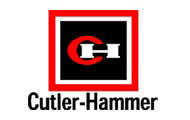Frequently Asked Questions
How does an air conditioner work?
Simply put, an air conditioner moves heat from inside your home to the outside. Excess heat is absorbed by refrigerant and pumped through a system of pipes to an outside coil, where a fan transfers the heat into the outdoor air. With the heat removed, the indoor air is cooled.
What’s wrong with my air conditioner?
If the system isn’t running at all, it could be something as simple as a blown fuse or an improperly set thermostat, or as major as a broken compressor. If the system is running but not cooling properly, the problem might be a low refrigerant level. If you hear odd noises, your compressor might be going out. A certified technician should be able to quickly diagnose the problem.
How much water does my air conditioning system produce?
Most air conditioning systems produce 5-9 gallons of water per day. The exact amount varies based on several factors, including outdoor humidity level and thermostat setting. If this excess water doesn’t drain normally, you could face major damage to your air conditioning system — and your home.
What causes a condensate water leak problem?
Leaks generally occur when the evaporator coil drain line becomes clogged, and moisture removed from the air during the cooling process backs up and overflows. Because the evaporator coil is normally located in a closet or attic, leaks aren’t always discovered right away
Drain line clogs can be caused by a variety of causes, including algae build-up, crimped drain lines, airborne debris, attic insulation, house settling, and the actions of rodents, snakes or other animals.
How often should I replace my filter?
Standard throwaway filters should be changed monthly. High efficiency pleated or media filters can last as long as 6 months.
When should I replace my air conditioning system?
It’s often a judgment call. Like a car, once repairs aren’t cost-effective to make it’s probably time to consider purchasing a new system. Pay particular attention to your compressor — once it starts to go, you might be better off buying a new unit than trying to repair the old one.
Should I repair my own air conditioner?
No! Today’s cooling systems are much more complicated than they once were, and without proper training you could cause serious damage to your unit. Federal regulations also require proper disposal of refrigerants. The best course of action is to call an EPA-certified technician at the first sign of trouble.
How do I know if my heating and cooling system needs to be replaced?
If your system is more than ten years old, then, like a ten-year-old car, it could start to give you trouble. At a point, it may be time to consider a new high efficient home comfort system. The additional comfort and reliability alone may be enough for a new system, not to mention the possibility of a dramatic utility savings.
Will a new system save me money?
The home comfort industry, like all electronic industries, has made great gains in technology. Today’s home comfort systems are over 100% more efficient than those made a decade ago.
How do I know which system is right for my home?
The houses on your block may look alike, but each is quite different. By having a complete home inspection performed by a 7M Fabrication certified technician, you can be sure you have a system that is perfect for your house and your life style. Our certified technician will spend time with the most important element of designing a heating and cooling system – you.
How do I figure out what size system I need?
Again, our certified technician will thoroughly inspect your home including insulation values, size of the living area, skylights, windows and all the other factors that contribute to accurately sizing a heating and cooling system. We want to tailor a system to fit your specific situation.
What are the advantages of the different kinds of heating systems?
- Natural gas heat is the most prominent type of heating found in the Big Bend area. New natural gas furnaces provide clean, efficient warmth and today’s multi-stage, variable speed furnaces are much improved over the old gas behemoths of the past.
- Heat Pumps are the most environmentally friendly, as well as the most generally efficient and comfort conscience systems available. Heat pumps actually move heat, rather than create it, to provide outstanding temperature and humidity control along with very efficient operation. Compared to straight electric or liquid propane heat a Heat Pump can be expected to provide 2-2.5 times more heat per dollar spent on utilities.
- Straight electric furnaces are the most inexpensive systems and are great for applications that require minimum heat.
- Liquid propane gas (LPG) systems are designed for those applications where the electric and natural gas services are too small or non-existent. Propane is brought to your location and stored on your property, so these are generally restricted to locations outside of the city limits.
Do you have financing options available?
Financial assistance is available on all our Home Comfort Systems with many financing programs available, with approved credit.
Will I have to reduct my house?
Not necessarily. Even if your ductwork is the original materials, it can often be reused with a new heating and cooling system. Of course, a new super insulated air duct system would provide optimum airflow and efficiency for each room of the house. A 7M certified technician can thoroughly inspect your existing air distribution system and suggest what is right for you.
More questions? Feel free to contact us to find out more!










